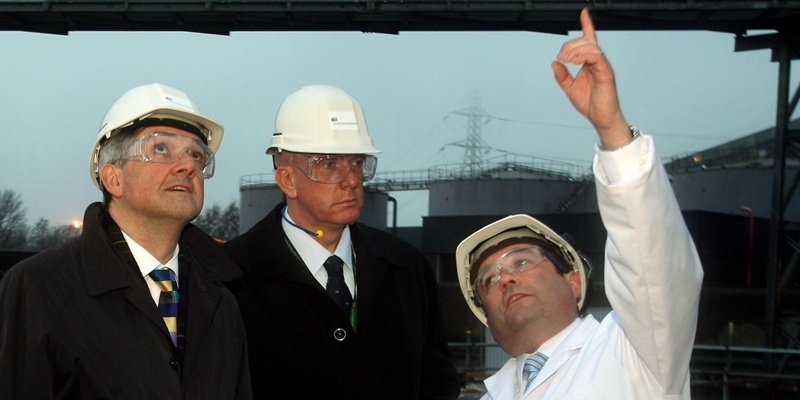ScottishPower has insisted talks with the UK Government are continuing, despite strong rumours that its flagship carbon capture and storage project is on the brink of collapse.
There has been mounting speculation that ScottishPower, which leads a consortium bidding to build a £1bn prototype CCS project at Longannet Power Station in Fife, is about to withdraw from the Westminster competition.
It has been suggested talks between the department of energy and climate change and ScottishPower’s parent company Iberdrola had broken down possibly over a multi-million-pound shortfall in funding.
If true, it could have a devastating impact on the Scottish economy and jobs market and for the wider CCS sector.
A ScottishPower spokesman said: ”Negotiations with the department of energy and climate change over the next phase of the CCS demonstration competition are continuing.”
A department spokesman said: ”All we can say at the moment is that negotiations are continuing but no decisions have been made at present.”
But insiders said it could be the end of the road for the far-reaching scheme amid claims the consortium has concerns about its commercial viability without more investment.
Dunfermline and West Fife MP Thomas Docherty said he would speak to ScottishPower this week urging them and the UK Government to get back around the table.
”This doesn’t help anybody, particularly the workforce,” said Mr Docherty, who is also a member of the all-party parliamentary group on CCS. ”I’ll be speaking to ScottishPower and ministers in the coming days let’s see where we get to then.”
WWF Scotland director Dr Richard Dixon, said the rumours were ”deeply worrying”.
The group found Longannet to be the best option for CCS trials, arguing that other sites would result in vastly higher carbon emissions.
Dr Dixon said: ”If the UK truly wants to lead the development of this technology, as many politicians have said, then we do hope that all those involved can find a way to make this project happen.
”It would be a major blow to international efforts to develop carbon capture and storage if this scheme were not to happen at Longannet.
”Longannet is the right sort of power station in the right place to do this kind of large-scale trial, potentially learning lessons which could help reduce emissions at thousands of coal power stations around the world.”
Continued…
”It would be a major setback if the only remaining scheme in the government’s CCS competition now fell at the final hurdle.”
ScottishPower and its partners Shell and the National Grid entered the government’s competition to fund a commercial-scale CCS project at the power station on the banks of the Forth. Originally nine were in the running, but the consortium is the last remaining entrant.
Until late last year it was in a two-horse race with energy giant E.ON. Its bid was given a double boost a year ago when E.ON announced that it was withdrawing from the procurement process, leaving Longannet the third-largest coal-fired power station in Europe as the only contender.
That same month Chancellor George Osborne said £1bn would go towards building power stations with technology to capture and store carbon emissions.
The proposals looked positive last January when energy secretary Chris Huhne visited Longannet where a CCS demonstration unit has been running since May 2009.
Last summer the consortium’s plans for a full-scale CCS project took another step forward when plans were unveiled for the major pipeline which will carry up to two million tones of carbon dioxide from Longannet to the North Sea.
Proposals include building an 18km pipeline from Longannet under the Forth to Dunipace where it would be coupled to the existing pipeline running from Fife up the east coast to St Fergus.
Carbon emissions will be transported from St Fergus offshore to be stored in Shell’s depleted gas field.
From the outset the scheme was heralded as a trailblazer across the world as the fight on climate change continued.
Earlier this year a Scottish Enterprise study revealed Longannet could help create 5000 jobs and boost the economy by £3bn. It said over 5000 green jobs could be created through building and operating three CCS demonstration projects in Fife, Peterhead and Hunterston.
Last week the CO2 Transport Options For Scotland study claimed early investment could put Scotland at the forefront of global CCS. It said that around 70 million tonnes of CO2 per year could be captured, transported and stored offshore in Scotland by 2040, through the formation of a CCS infrastructure network and an estimated £4.5 billion of capital investment.
